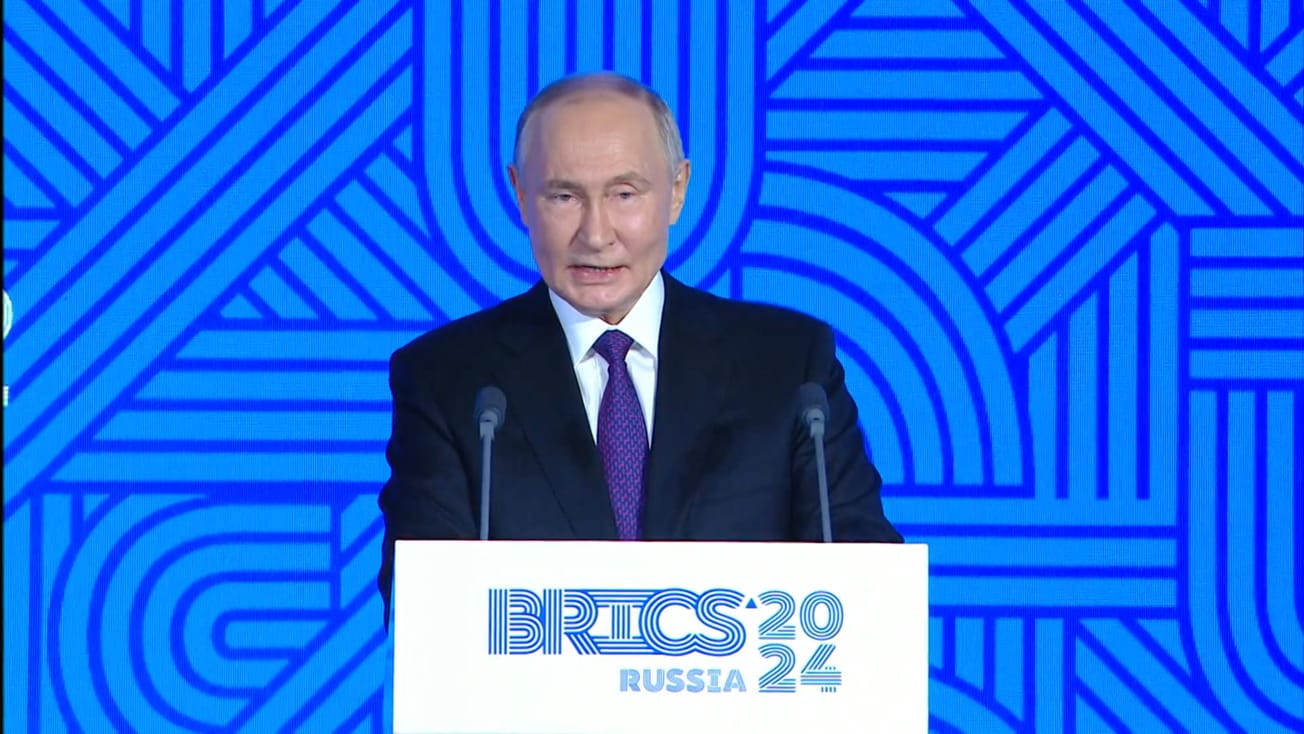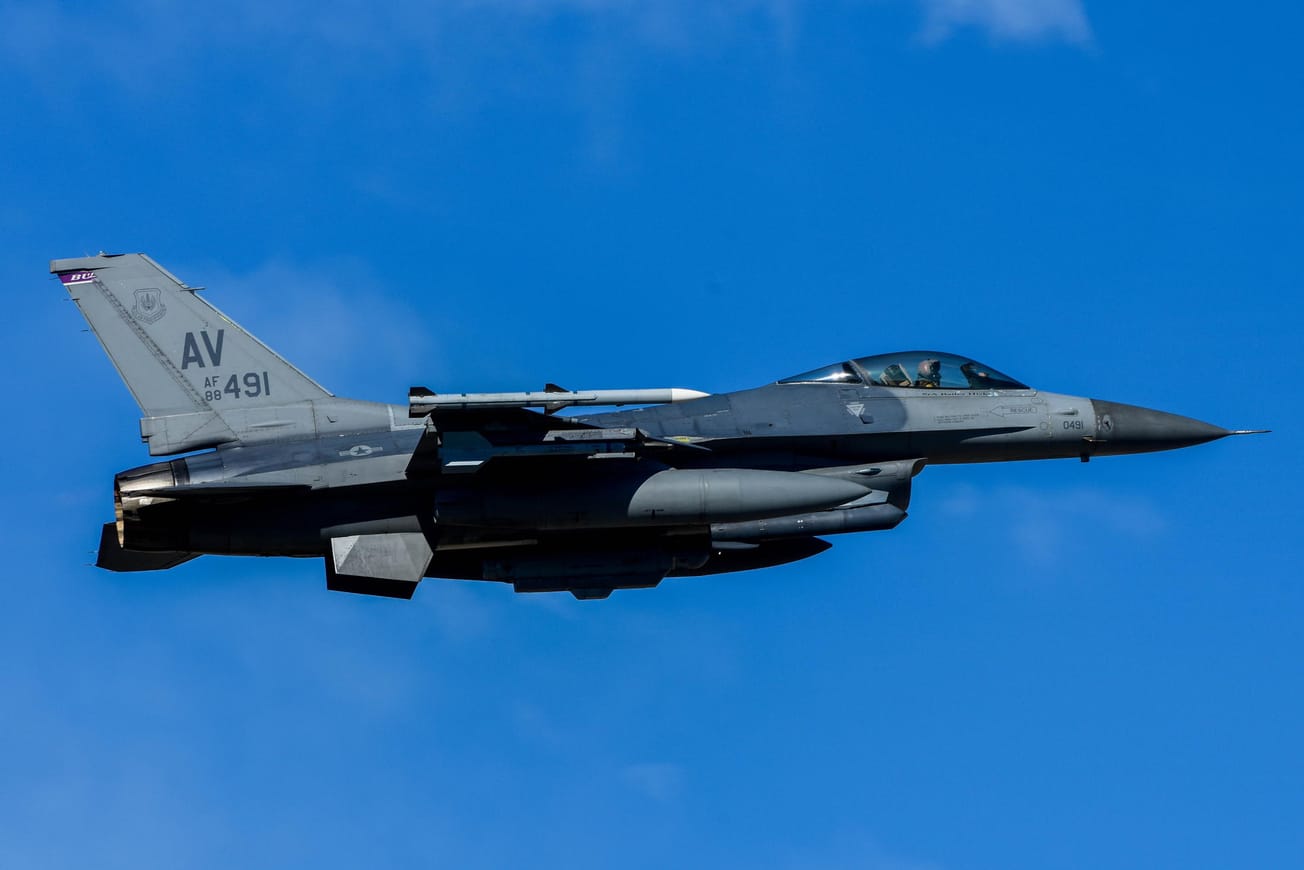March 15, 2024 (EIRNS)—The introductory remarks made today by Helga Zepp-LaRouche, the founder of the Schiller Institute and the initiator of the International Peace Coalition, to the 41st session of the IPC, provide an excellent strategic overview:
Helga Zepp-LaRouche: First of all, let me say hello to all of you. The war danger is clearly not diminishing, and one of the people who has expressed that in the clearest way was Pope Francis who, almost two weeks ago, had demanded that the Ukrainians should raise the white flag and have the courage to negotiate a solution with Russia. This has caused an incredible storm by the mainstream media who accuse the Pope of calling for surrender and distorting what he said in various ways. Then, when Cardinal Parolin, who is sort of the Foreign Minister of the Vatican, explained what the Pope had said, the mainstream media distorted that again, and said you see the Vatican is rolling back, he is correcting the Pope. He did not do that at all. Cardinal Parolin just put in other words by saying that “The risk that the world is in a fatal drift to nuclear war, is a real one.” I think that is exactly what we are facing right now. One of the people who attacked the Pope was Josep Borrell, the so-called foreign minister of the European Union, who said that the Pope entered a garden he was not invited into. Now, Borrell has all these strange images of a garden; thinking that Europe is a garden and the rest [of the world] is a jungle, so it’s not entirely clear what he meant with this statement.
In a very important related development, where we are really on the edge of crossing the red line, where the drift to nuclear war could take decisive steps, is the deployment of the Taurus cruise missile, where the opposition in Germany had tried another time to get a vote in the Bundestag, which fortunately was rejected. However, this is not a reason to be calm, because they will for sure try to make another effort, and the government coalition itself was completely divided.
Peskov, the spokesman of the Kremlin, attacked the way Washington had distorted the March 13 interview which Putin had given to RIA Novosti, where he said very clearly under what conditions Russia would use nuclear weapons. According to Peskov, this was then distorted by Karine Jean-Pierre, who is the White House Press Secretary, who said that Putin had used reckless rhetoric and threatened the use of nuclear weapons. This he did not, and Peskov corrected that; he said, what Putin did say was what the reasons would be if Russia would use nuclear weapons. Namely, that if the existence of Russia is at stake and threatened, under these conditions, even if it would only be a conventional war, Russia would resort to the use of nuclear weapons. This is clearly not Russia which is pushing this; it is NATO and the West that are driving over the edge. Naturally, this spokesperson completely omitted what Putin also had said, which was that neither he nor anybody else in the Russian leadership at no point considered the use of nuclear weapons in Ukraine. So, that is still hanging in the air.
The brakes are on for the time being from the German side. Today is a very important meeting with Macron and Scholz and Poland’s [Prime Minister] Tusk. So I don’t know what will be the outcome of that, but Macron is still pushing for NATO troops to be potentially deployed in Ukraine; which fortunately Scholz so far is resisting. But this is all hanging by a thin hair, because if there would be a government crisis, and you would have the opposition coming in, they are full of hawks, who would like nothing better than to deploy the Taurus cruise missiles. So, that situation remains extremely fragile.
The other major crisis, in Southwest Asia, is also very labile and fragile. The new development is clearly that Sen. Chuck Schumer recently came out and demanded that Netanyahu resign, and to have new elections in Israel. He accused Netanyahu that he does not serve Israeli security by making Israel a pariah state. That is quite interesting, because Schumer in the past never said one word against Israel. This may be a response to what Netanyahu said at the March 12 AIPAC [American Israel Public Affairs Committee] meeting; namely there is no alternative to total victory, meaning the fight will go on until the last Hamas person is eliminated. So, that remains to be seen. But all of these developments have already caused an almost insurmountable rift between the countries of the Global South and the so-called collective West. You could see in a joint press conference which was just held by Chancellor Scholz together with the Prime Minister of Malaysia Anwar Ibrahim, when Scholz repeated his usual position that German policy towards Israel has not changed, they have a right to self-defense, humanitarian aid, release of hostages, a two-state solution; but basically saying nothing of relevance there. To which Prime Minister Anwar answered—and that gives you a flavor of how the rest of the world perceives this—he said, “How can you ever find a solution if you are so one-sided? What about the 60 years of atrocities? What about the behavior of the settlers? Is this of no concern? Where have we thrown away our humanity? Why do you have this selective attitude? Because the Palestinians are colored? Because they have a different religion? What about the thousands and thousands of people since the Nakba occurred in 1948?” For a Prime Minister to basically say to a Chancellor, accusing him de facto of racism—"Is it because they are colored?” That gives you a sense why, if you are one-sided you cannot find a solution. If you demand a diplomatic solution, it does not mean that one side or the other side is right; it just means if you don’t recognize that a continuation of the killing will lead to a catastrophe for us all, and that has been absolutely omitted by all the critics who criticize those who are demanding a diplomatic solution.
We from the International Peace Coalition and the Schiller Institute want a little bit more. We think that only if you change the underlying axioms, the paradigm which causes people to come up again and again with geopolitical so-called solutions; that only if you change that and go to a completely different approach, like what we are proposing with the Oasis Plan for Southwest Asia. The Southwest Asian economic development program which should include all the countries, not only Israel and Palestine, but Iraq, Afghanistan, Syria, Yemen, and all the countries which have been destroyed by the endless wars, they have to be reconstructed. And there has to be found a common platform so that everybody has a future and they can relate to a joint common good as the way to climb out of this present pit.
Now, I have some good news. Namely, that the Ambassador of the Palestinian Authority in Denmark, H.E. Ambassador Prof. Dr. Manuel Hassassian, who is a career diplomat; he has a long excellent academic career also in the United States. He was leading in many universities, both in the Middle East and in the United States and the U.K. He has come out with an excellent interview completely endorsing the Oasis Plan. I think we should use that interview also to approach more people to attend our conference on April 13th. So, I think I have many other hopeful signs that people really respond to the idea extremely well. So I think that while we should not pay less attention to the danger which is increasing daily one can say, it is also clear that if there is a decisive action, there is hope that we can turn the situation around. That is really what I wanted to say.








